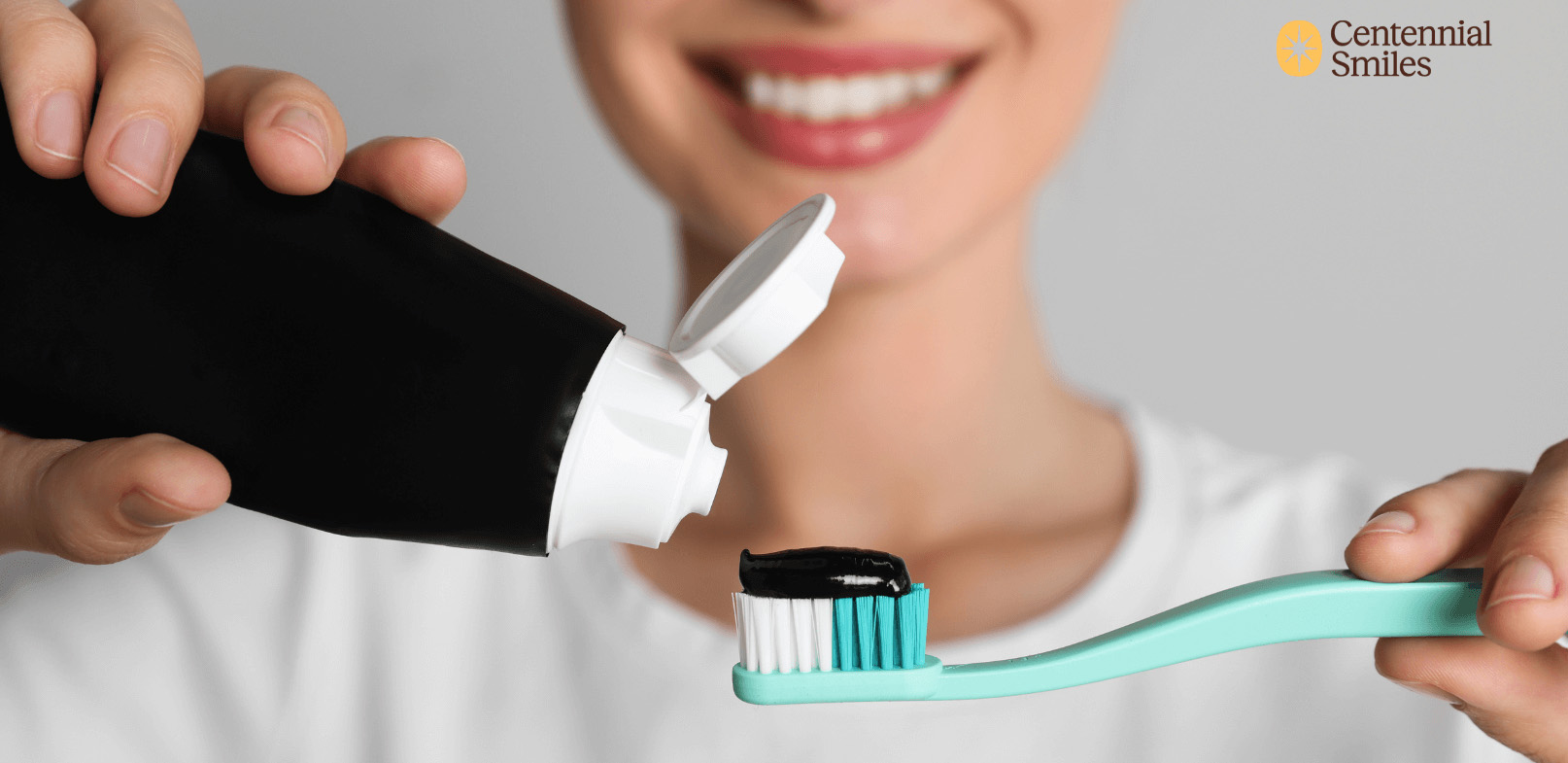Oral Health
3 Mins Read
What is charcoal toothpaste and how does it work?
Does charcoal toothpaste make you think about ditching your current toothpaste?
If you’re seeing this trend in your network, you may be intrigued. How does charcoal toothpaste work? Is it safe for daily use? Can it whiten teeth effectively?
We answer these questions and more in this post. Let’s see what dental professionals think and whether charcoal toothpaste is suitable for daily use.
What is activated charcoal?
Activated charcoal is a form of carbon treated under intense heat to make its surfaces porous. It serves as a powerful magnet for particles, such as dirt.
In toothpaste, activated charcoal claims to sweep away unwanted substances, such as stains and bacteria. Hence, it’s usually marketed as a mouth cleanser and breath freshener.
Is charcoal toothpaste safe?
According to dental professionals, charcoal is abrasive, and long-term use can harm the enamel. Switching to charcoal toothpaste without fluoride can also increase the risk of developing tooth decay.
Before trying new dental products, consult with your dentist. Find out which toothpastes are suitable for your oral health needs, and look for items with the seal of approval from the Canadian Dental Association.
Does charcoal toothpaste whiten teeth?
Toothpaste with activated charcoal may target surface stains, but it cannot address discolouration below the enamel.
Surface stains or extrinsic stains are usually due to consuming highly-pigmented food and beverages. Whitening toothpaste can remove them.
Intrinsic stains, on the other hand, are stains below the enamel. They’re deeper so they require different treatments, such as bleaching procedures administered by a dental professional.
A charcoal toothpaste won’t be able to penetrate deep into the teeth. It won’t be enough to get rid of intrinsic stains.
Charcoal toothpaste facts:
- May help get rid of surface stains. Activated charcoal is abrasive and this allows it to remove surface stains. It may help maintain results after getting a professional dental hygiene cleaning and prevent future surface staining.
- May help make the teeth whiter. If the stains on your teeth are extrinsic, using charcoal toothpaste may help remove them and make your smile look whiter.
- May help freshen your breath. Since charcoal toothpaste helps get rid of debris on tooth surfaces, it may also help keep the breath fresh.
- May erode the enamel. Since activated charcoal can be highly abrasive, it also runs the risk of damaging the enamel. Once the enamel erodes and thins, the darker layer beneath it becomes more prominent. This can make your teeth appear yellowish.
- Does not contain fluoride. Fluoride helps strengthen the enamel, that’s why you may hear dentists recommending fluoride toothpaste. Charcoal toothpaste, meanwhile, doesn’t contain fluoride.
- May increase the risk of decay. The safety and efficacy of activated charcoal dental products are still being studied. But since charcoal is highly abrasive, it can cause the enamel to wear and expose the nerves.
- May affect dental work. Black particles in activated charcoal can get stuck on the teeth. They can get caught between the natural teeth and dental fillings and leave black lines
What’s the safe way to whiten teeth?
Charcoal toothpaste may seem promising due to marketing, but dental experts don’t recommend them for daily use.
To improve the appearance of your teeth, try oral care products your dentist recommends. Or consider dentist-administered treatments, such as tooth whitening.
If you have more questions about toothpaste options, teeth whitening options or you are looking for a new dentist in downtown Calgary, Alberta, contact us today at (587) 317-7959 Let’s keep your smile safe and protected.


